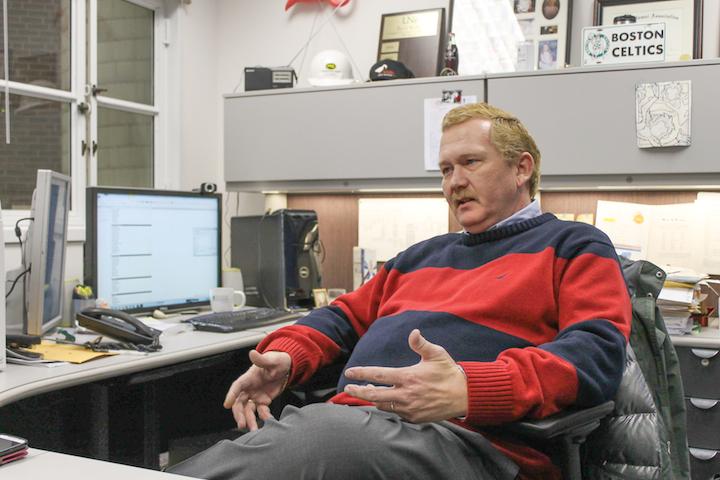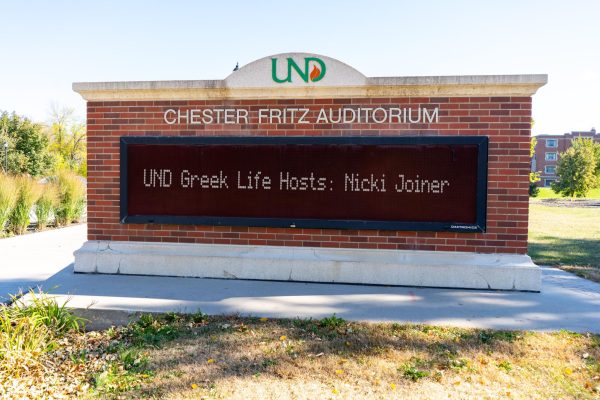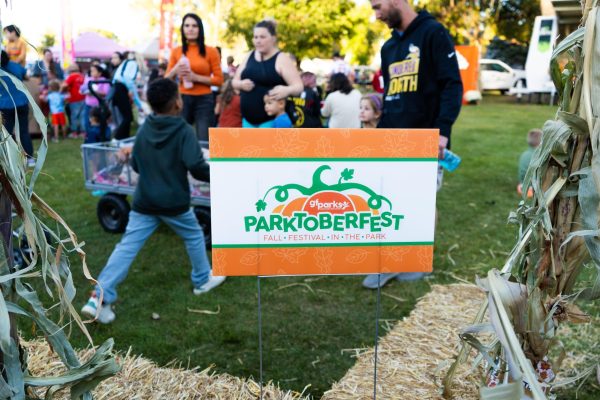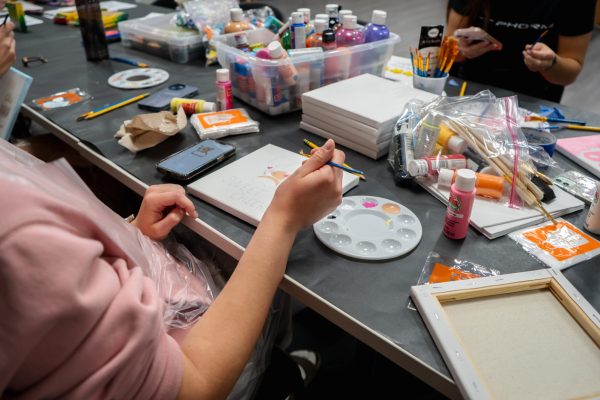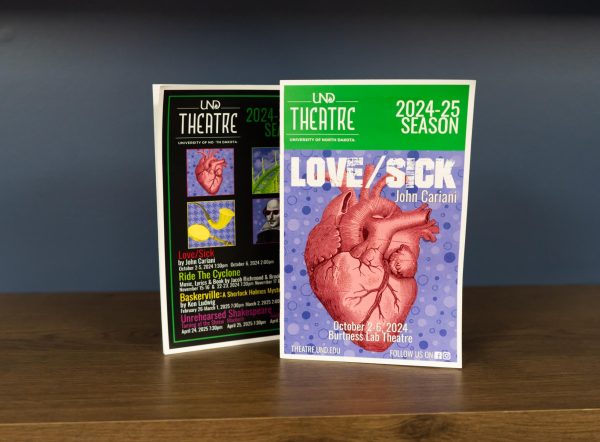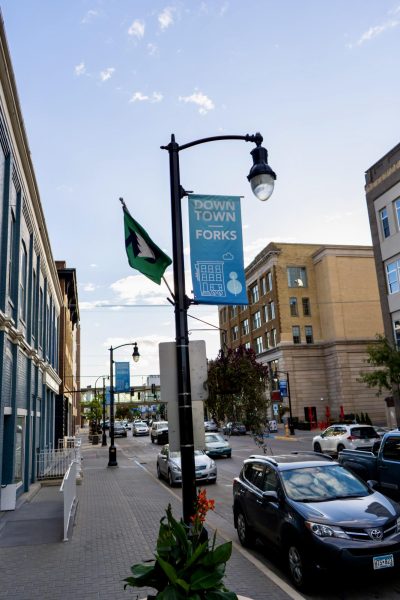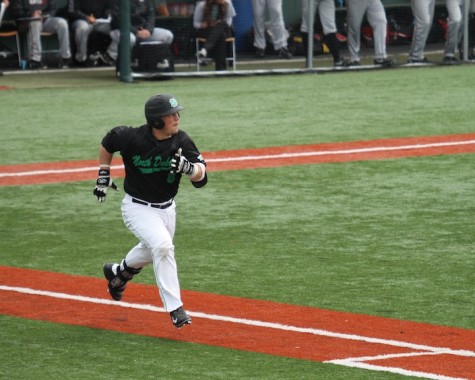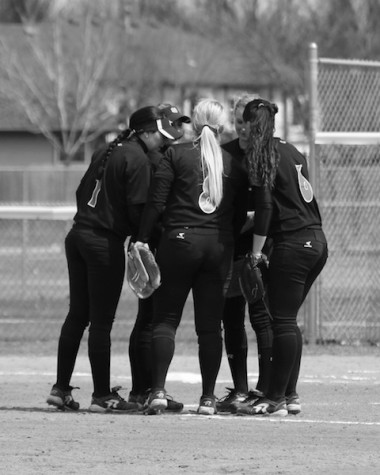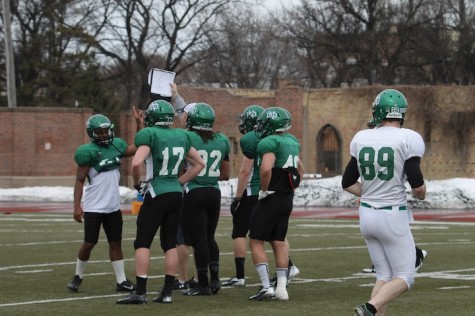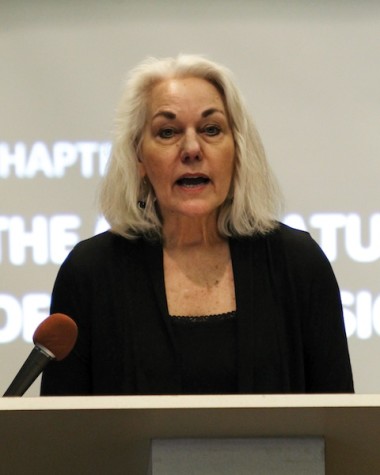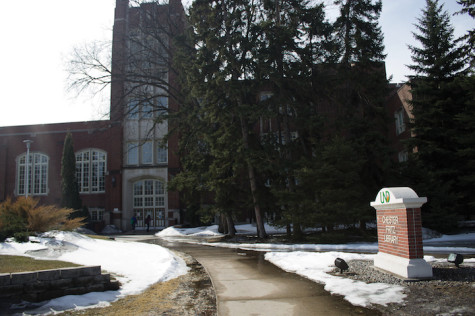Researcher receives grant for puppy virus study
Parvovirus antibody reduces sick time, cost of treating infected puppies
David Bradley discusses his parvovirus research on Wednesday at the School of Medicine and Health Sciences. Photo by Jennifer Friese/The Dakota Student.
A UND researcher has received a $2 million grant to continue his research into treating an illness attacking man’s best friend.
Executive director of the Center of Research Excellence for Avian Therapuetics for Infectious Disease David Bradley received the grant to research and study treatments for parvovirus — a highly contagious viral disease that can lead to severe illness and death in dogs.
According to Bradley, the grant came in two parts — $1 million came from the North Dakota Department of Commerce, and Research ND Bio (Avianax LLC) matched the $1 million grant to help support the creation of a parvovirus antibody.
“The grant is divided into three milestones,” Bradley said. “The first is demonstrating success in field studies … second is to establish the manufacturing facility … and third is to get the product in the market.”
Bradley’s research has shown success in the field trials, but the amount of tests actually done is low because of weather. Bradley said that parvo isn’t a winter disease, so cases are lower in North Dakota.
The canine parvovirus attacks dogs in two different ways. The intestinal form is more common, and causes lack of appetite, diarrhea, vomiting and weight loss. The cardiac form is less common but often leads to death.
The parvovirus usually affects puppies six weeks to six months old, and is highly contagious, but can be reduced by vaccinations early on.
“Currently, we have tested on 23 dogs since last fall, with a survival rate of 87 percent,” Bradley said. “We were only taking in dogs from Minnesota and North Dakota, but now that we are approved by the USDA we are expanding and expecting the number of dogs to go up.”
Bradley said the USDA has allowed him to work with a no-kill animal shelter in Kansas City. A large practice in Texas also has requested the antibody.
Approval from the USDA also will increase the amount of research done in a more controlled setting.
“Right now we have just had vet clinics bringing dogs in (with parvo), but we know nothing about the prior circumstances of the dog,” Bradley said. “Being able to actually have a controlled setting will help further the parvovirus research.”
The antibody
Other than saving dog’s lives, the antibody produced by Bradley’s research has reduced the amount of sick time in dogs already diagnosed with parvo.
Bradley said most dogs with parvo take five to seven days to get better, but the antibody has dogs eating and drinking again within 12 to 24 hours. The ones that did not survive were very sick. They were probably at a point of no return, he said.
“Economically, this helps because a week in a vet’s office (in North Dakota) would cost $1,500,” Bradley said. “Now we are looking at $100 for treatment, so it is cost effective.”
Ultimate goal
The parvovirus antibody created with Bradley’s research is saving puppies, but he said the ultimate goal is to get all of the antibodies into the market, and create better chances to find antibodies for humans.
Bradley said they hope the antibody for parvovirus is a platform for creating other antibodies that help treat human viruses — one successful example being malaria.
“Before this, we have made therapeutic antibodies to 13 different viruses, so we have a long track record of success,” Bradley said.
Misti Meads is a staff writer for The Dakota Student. She can be reached at [email protected].


